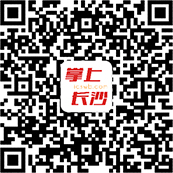伊拉克小伙:双手扎得了银针拿得了麦
Introduction to the Character
Jia Side, male, born in 1997, is an Iraqi national. He graduated with a bachelor’s degree in Clinical Medicine from the International Education College of Hunan University of Chinese Medicine and is currently pursuing a master’s degree in Journalism and Communication at Central South University.
What He Said
I may become a doctor in the future, but my dream is cultural exchange. 2025 marks the 10th anniversary of the establishment of the China-Iraq strategic partnership and the 10th anniversary of the signing of the Belt and Road cooperation document between China and Iraq. Iraq has become an important partner of China in the Belt and Road Initiative. I want to bring Chinese culture to Iraq and even the whole world.

"I’m so excited to attend this conference..." On July 29, the World Youth Conference For Peace was held in Beijing, and Jia Side was invited to participate by the Chinese People’s Association for Friendship with Foreign Countries. When the reporter connected with him that night, as a postgraduate student majoring in journalism and communication, he introduced professionally: "This year marks the 80th anniversary of the victory in the Chinese People’s War of Resistance Against Japanese Aggression and the World Anti-Fascist War. This conference is an international youth exchange event co-hosted by the Chinese People’s Association for Friendship with Foreign Countries and the All-China Youth Federation, with the theme ‘Together for Peace’..."
"I have stayed in China for about 10 years, and I spent the best years of my youth here." Before going to Beijing, Jia Side visited Dr. Zhan Tao, his teacher of clinical internal medicine, at the Integrated Traditional Chinese and Western Medicine Department of the First Hospital of Changsha, where the reporter interviewed him.
Encounter with Traditional Chinese Medicine (TCM)
"Three fingers can diagnose all diseases, more magical than precision instruments"
"Remember, pregnant women cannot receive acupuncture at Hegu acupoint..." In the treatment room of the Integrated Traditional Chinese and Western Medicine Department, the faint fragrance of moxa filled the air. Jia Side took the opportunity to review acupuncture techniques with his teacher. He held his breath, slowly inserting a thin silver needle into his own Hegu acupoint; the skin dented slightly, but there was no trace of blood. Teacher Zhan Tao reminded him of the "contraindications" of acupuncture nearby. This young man from Iraq, when he first tried acupuncture on himself 8 years ago, exclaimed: "The needle goes in without bleeding, and it can even cure diseases."
In 2003, 6-year-old Jia Side moved to Syria with his family. After 12 years of wandering, the 18-year-old came to Yiwu, China with his parents, where he first felt the "pulse" of TCM. "Chinese people talk about TCM and health care as casually as they talk about the weather." This infiltration of cultural genes shocked him. "I want to stay in China and explore the mysteries of TCM culture." He quietly entered the campus of Hunan University of Chinese Medicine.
"Learning TCM is like climbing two peaks at the same time." One is language, and the other is TCM itself. To remember acupoints such as Zusanli, Baihui, and Guanyuan, he was inspired by Teacher Zhan Tao and creatively numbered each acupoint with a digit.
A late-night first-aid experience in his sophomore year made him witness the magic of TCM. A friend suffered severe lumbar pain and couldn’t move, and an ambulance arrived with sirens blaring. Some doctors suggested surgery, but a TCM expert felt the pulse with three fingers and then used acupuncture combined with acupoint pressing. Half an hour later, his friend could stand and walk. "Three fingers can diagnose all diseases. It’s even more amazing than precision instruments."
Feeling Happiness
Studying medicine, eating spicy food, and hosting in Hunan; particularly fond of Shibadong Village
During the pandemic, Jia Side returned to Iraq but persisted in online learning. At the same time, through the Iraq-China Friendship Association, he worked as a Chinese teacher in Iraq. From a clinical medicine international student to a field host and video blogger later; from witnessing great changes in Chinese villages to becoming an "online celebrity" building bridges for cultural exchanges, Jia Side’s favorite Chinese saying is "Happiness is achieved through hard work."
Through social media platforms such as Tiktok and Kuaishou, JiaSide continues to share his life: speaking fluent Chinese, eating Changsha stinky tofu and spicy strips, etc., gaining many fans. "As early as 2022, I had over 200,000 fans on Kuaishou." Chinese netizens like this handsome Iraqi young man, while foreign netizens praise the Chinese stories he shares.
In Changsha, he fell in love with tea drinking and learned to study Chinese tea culture. He knows about Anhua dark tea in Hunan, as well as scented tea and white tea. Because he often shoots short videos and introduces Chinese food and culture through live broadcasts, his popularity has grown. Now, he has also developed a love for reading Chinese ancient poems. "China has become my second hometown."
"Previously, when I missed my hometown and the people I love, I could only say ‘I miss you’, but now it’s different..." JiaSide affectionately recited Love Seeds by Wang Wei, a poet of the Tang Dynasty: "The red beans grow in southern land. How many loads in spring the trees? Gather them till full is your hand; They would revive fond memories." He also added: TCM emphasizes the homology of medicine and food, and red beans have many benefits such as clearing heat and detoxifying, invigorating the spleen and stomach, promoting diuresis and reducing swelling, and beautifying the skin.
As his Mandarin became more fluent, JiaSide started as a host at the school’s orientation party, and later participated in the Hunan Provincial College Students’ Art Festival and the International Students’ Chinese Poetry Competition. By chance, a director from Hunan TV’s International Channel programWorld's Sight of Hunan discovered him and invited him to be a field host. He followed the program team to visit rural areas in Hunan, including Shibadong Village in Huayuan County, western Hunan (the birthplace of China’s "targeted poverty alleviation"), "the hometown of Nan bamboo" in Taojiang, Miluo in Yueyang, etc., focusing on China’s rural revitalization and interpreting China’s poverty alleviation code from a foreign perspective.
JiaSide said: "The reason I particularly like Shibadong Village is that I hope Iraq can develop as vigorously as Shibadong Village and keep moving forward."
Spreading Culture
Let the "world" see the real China
"Ten years ago, my friends in Iraq asked me ‘why go to China’, but now they all ask ‘how to go to China’." The change in their questions made JiaSide deeply realize the importance of cultural communication.
On April 25 this year, he led relevant personnel from the Iraq-China Friendship Association to the First Hospital of Hunan University of Chinese Medicine to observe the clinical application of characteristic TCM diagnosis and treatment techniques, and experience acupuncture, moxibustion, tuina (traction and spinal adjustment), and auricular point pressing with beans. A member of the delegation sighed: "It’s such an amazing feeling. The breadth and depth of TCM are astounding!"
"To understand Chinese culture, I have visited Shanghai, Zhejiang, Guangzhou, Shenzhen, Qingdao, Haikou, Sanya and other places during vacations. Seeing is believing." To let the "world" see the real China, he took foreign friends to check in at the on-site painting art exhibition featured in Hunan TV and Mango TV’s large-scale historical and cultural documentary China.
"This is oracle bone inscriptions, which were prevalent in China’s Shang Dynasty more than 3,000 years ago. They are a bit like the cuneiform writing of ancient Babylon." While explaining, he hummed Jay Chou’s song Love Before BC: "The ancient king of Babylonian proclaimed the code of Hammurabi, engraved on black basalt, which has been around for more than 3,700 years..."
How to convey the ancient and magnificent Chinese culture to foreign friends with different cultural backgrounds and languages? And how to present the splendid culture of the birthplace of the Mesopotamian civilization to China? "Let China open up to the world, and let the world open up to China," JiaSide believes that the Chinese government has long made plans. Although everyone will have different experiences, the commonality of aesthetics and the inclusiveness of Chinese culture can make different civilizations appreciate their own beauty and the beauty of others, achieving harmony in diversity.
"Just like the long river of TCM culture, which has converged into a beautiful cultural belt, shining brilliantly around the world," JiaSide said.

中文稿件请点击链接↓










